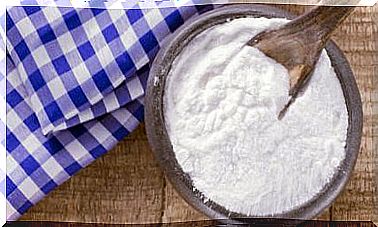7 Foods That Help To Improve Oral Health
If you are one of the people who is interested in keeping the oral cavity in order, you must bear in mind that nutrition plays an important role. In this sense, do you know what are the foods to improve oral health?
So, if you suffer from tooth decay, inflammation of the gums or bad breath, the problem may be due to the ingestion of products that are not healthy for your mouth. Find out in this article what foods you should eat.
Foods to improve oral health
One of the recommendations that you have surely heard is that to keep this area healthy, you must be constant with brushing, flossing, as well as the use of mouthwash. However, you may not know about the influence of diet to achieve this goal.
To be clear, there are foods that promote tooth decay because they contain sugar in significant amounts. Such is the case of sweets, sweets and sugary drinks, which according to several studies have a direct relationship in the development of this condition.
Otherwise, there are other foods that provide vitamins and minerals that contribute to the formation of teeth and also prevent the damage caused by bacteria, thus reducing the risk of suffering from oral disorders. Indeed, the nutrients that exert this action are:
- The calcium.
- Fluorine.
- Vitamin D.
- Magnesium.
- The match.
Fortunately, there is a list of foods that contain these compounds that you should incorporate into your diet to keep oral health under control. Do not forget that you also have to check up periodically with your dentist.
Sugar-free chewing gum
Sugar-free gum has non-caloric sweeteners that help prevent tooth decay. In fact, the sweet taste and chewing stimulate the flow of saliva, which helps prevent its appearance. Thus, these may contain minerals that enhance the remineralization process of the teeth such as calcium, fluoride and phosphate.
In addition, there are studies that report that chewing this type of gum after a meal accelerates the cleaning of food remains and thus reduces the development of cavities in children and adolescents.
Water

If you consume water throughout the day, you not only ensure optimal hydration, but you also stimulate the production of saliva. In general, drinking 2 liters of water is enough to promote the salivation process.
Whole grains
All foods that require more effort to chew are recommended for the prevention of oral disorders. Thus, preferring grains and whole grains is an effective strategy in this task.
Dairy products
Both milk and its derivatives are foods that provide calcium. Therefore, its consumption helps to strengthen the enamel of the teeth, protect them from wear and tear and remineralize them. Of course, the ideal is to eat those that do not contain added sugars.
Fruits and vegetables

Several studies show that eating fruits and vegetables daily significantly reduces the risk of developing oral cancer by 50%. Also, the polyphenols (natural compounds with antioxidant effect) that they contain stimulate the elimination mechanisms of inflammatory substances and act on bacterial plaque.
Nuts and seeds
Almonds, hazelnuts, pistachios and seeds such as white sesame or poppy are foods in which calcium stands out. In this sense, if you incorporate them into your diet, you help protect tooth enamel.
Green Tea

In tea, like vegetables and fruits there is a considerable contribution of polyphenols, of all the types that exist, green tea has more of these compounds so it exerts an important antibacterial effect. Therefore, it is an ally to protect the gums and prevent bad breath.
By brushing your teeth after taking it, it is enough to avoid the appearance of possible stains.
Tips to strengthen your oral health
In addition to following these recommendations, we advise you to avoid those products in which sugar predominates, that you do not neglect your regular oral hygiene and that you do not abuse toxic substances such as alcohol and cigarettes because they are not healthy for your health in general.
What to remember about foods to improve oral health?
From now on you know that if you base your diet on natural products such as dairy products, fruits, vegetables or other of those mentioned, it will be easier for you to keep your oral health under control. Of course, in addition to that you must brush at least 3 times a day and use mouthwash and dental floss.
Also, regular check-ups with your dentist will prevent you from suffering from problems in this area such as inflammation of the gums, accumulating excess bacterial plaque or suffering from frequent tooth decay.









